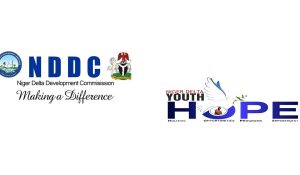
Eche Munonye
Corporate Social Responsibility (CSR) and sustainability initiatives have become increasingly important for organizations worldwide, as they strive to address social and environmental concerns while ensuring long-term success. In Nigeria, a country with a diverse economic landscape and numerous social challenges, reporting on CSR and sustainability initiatives presents unique obstacles. Despite progress in recent years, several significant challenges persist, hindering the effective communication and assessment of these initiatives.
From the absence of standardized reporting frameworks to limited stakeholder engagement and financial constraints, each obstacle contributes to a complex landscape of transparency and accountability. Overcoming these challenges is vital for ensuring that organizations’ impact is accurately measured and understood, driving meaningful change and fostering sustainable development in Nigeria. By shedding light on these obstacles, this exploration seeks to create awareness and inspire action to enhance reporting practices. It aims to encourage stakeholders, including businesses, regulatory bodies, and civil society organizations, to work collaboratively in developing strategies and solutions that can address the unique challenges faced in reporting CSR and sustainability initiatives in Nigeria. Only by navigating this path to transparency can organizations truly demonstrate their commitment to sustainable development and meet the expectations of a rapidly evolving global landscape.
Here are some challenges commonly faced in reporting CSR and sustainability initiatives in Nigeria:
1. Lack of standardized reporting frameworks: Nigeria lacks a standardized reporting framework for CSR and sustainability initiatives. This absence makes it difficult to compare and benchmark different organizations’ performance. The absence of standardized reporting guidelines hampers transparency and hinders stakeholders from understanding the impact of initiatives effectively.
2. Limited awareness and understanding: Many organizations in Nigeria, especially smaller enterprises, may have limited awareness and understanding of CSR and sustainability reporting. They may not fully grasp the benefits or the methodologies required for effective reporting. This can result in inadequate disclosure or incomplete reporting, which fails to capture the true impact of initiatives.
3. Insufficient data collection and measurement: Organizations face challenges in collecting and measuring data related to CSR and sustainability initiatives. Nigeria lacks comprehensive databases and systems to track and quantify relevant indicators. Gathering accurate and reliable data can be time-consuming and costly, making it challenging for organizations to report their progress effectively.
4. Lack of stakeholder engagement: Engaging with stakeholders is crucial for successful CSR and sustainability reporting. However, in Nigeria, organizations often struggle to involve relevant stakeholders in the reporting process. This can lead to a lack of diverse perspectives and reduced credibility in the eyes of stakeholders, undermining the value of reporting efforts.
5. Limited enforcement and regulation: While Nigeria has regulations in place to encourage CSR and sustainability reporting, enforcement mechanisms may be weak. This lack of robust enforcement allows organizations to overlook or underreport their initiatives. Without adequate consequences for non-compliance, reporting can remain superficial and fail to drive meaningful change.
6. Financial constraints: Some organizations, particularly small and medium-sized enterprises (SMEs), may face financial constraints in implementing and reporting CSR and sustainability initiatives. Limited resources can hinder their ability to allocate funds for data collection, impact assessments, and external verification processes necessary for comprehensive reporting.
7. Communication challenges: Effective communication of CSR and sustainability initiatives is essential for stakeholders’ understanding and engagement. However, organizations in Nigeria may face communication challenges due to language barriers, diverse cultural contexts, and limited access to communication channels, especially in rural areas. This can result in a lack of awareness and appreciation for reported initiatives.
Conclusion
The challenges of reporting CSR and sustainability initiatives in Nigeria pose significant hurdles for organizations seeking to demonstrate their commitment to social responsibility and sustainable practices. The absence of standardized reporting frameworks, limited stakeholder engagement, data collection and measurement difficulties, weak enforcement mechanisms, financial constraints, and communication barriers all contribute to a complex reporting landscape.
Addressing these challenges requires a concerted effort from various stakeholders. The government, regulatory bodies, businesses, civil society organizations, and professional associations must collaborate to develop standardized reporting frameworks, enhance stakeholder engagement, improve data collection systems, strengthen enforcement mechanisms, and provide support for capacity building initiatives.
Overcoming these challenges is crucial not only for organizations but also for the overall progress of sustainable development in Nigeria. Transparent reporting enables stakeholders to assess the true impact of CSR and sustainability initiatives, fosters accountability, and drives positive change. It empowers consumers, investors, and communities to make informed decisions and encourages organizations to continually improve their social and environmental practices. As Nigeria moves forward, it is essential to recognize that these challenges are not insurmountable. By embracing transparency, fostering collaboration, and investing in sustainable reporting practices, Nigeria can position itself as a leader in CSR and sustainability initiatives, driving positive change and contributing to a more equitable and sustainable future.












